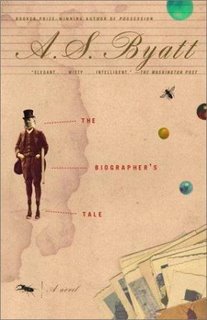 It finally happened. Last night, we had a lovely drizzle after another unyieldingly hot day with temperatures moving into the mid-thirties (mid-nineties) in the afternoon. Usually, I can smell rain a mile away, but this came quite unexpectedly. I was moving a few buckets of water around in the garden when it suddenly started. Very lightly at first, but then almost like a shower. It sounded as if rice was being poured. I turned my face upwards, savouring the feeling of nice, cool rain. Afterwards, the air was full of sweet and spicy fragrances of flowers and wet soil.
It finally happened. Last night, we had a lovely drizzle after another unyieldingly hot day with temperatures moving into the mid-thirties (mid-nineties) in the afternoon. Usually, I can smell rain a mile away, but this came quite unexpectedly. I was moving a few buckets of water around in the garden when it suddenly started. Very lightly at first, but then almost like a shower. It sounded as if rice was being poured. I turned my face upwards, savouring the feeling of nice, cool rain. Afterwards, the air was full of sweet and spicy fragrances of flowers and wet soil.
This morning, a fine haze of heat is hanging over the Wolf and the light is a bit misty although there isn’t a cloud in the sky. The water has reached the implausible temperature of 25 C (77 F) and the humidity of the still air is mind-boggling. Don’t mind the figurative sense of the word. It’s a fact. The mind boggles. The perception of reality begins to blur. Given the choice of being fried or boiled, I’d take fried anytime. Boiling is airless. The frying you can counter by moving into the shade or taking a swim, even in lukewarm water, but this wet air is everywhere. A fish could survive in it, wagging its gills vigorously.
THE BIOGRAPHER’S TALE
In the present overheated circumstances, reading matter for the siestas in the garden should be like the conversation at a friendly gathering, I think. Something not too upsetting so you can lower your sombrero now and then without worrying where it will all end. For this, the finely modulated voice of A.S. Byatt is exceptionally well suited. Her unhurried and knowledgeable studies of the lives of book folks are fascinating and often very funny. The brick-like novel Possession won her the Booker Prize in 1990. The Biographer’s Tale (2000), besides being smaller, has the added attraction of being told by a young scholar, who has decided to leave the narrow path of post-structuralist criticism and approach biography with a completely open mind.
“One of the reasons I had given up post-structuralist thought was the disagreeable amount of imposing that went on in it. You decided what you were looking for, and then duly found it – male hegemony, liberal-humanist idées reçues, etc. This was made worse by the fact that the deconstructionists and others paid lip service to the idea that they must not impose – they even went so far as half-believing they must not find, either. And yet they discovered the same structures, the same velleities, the same evasions quite routinely in the most disparate texts.”
I’ve always found modern literary theory difficult to grasp. Its meta-language throws me off course in no time. It seems to be such a joyless enterprise to dissect books as kinds of specimens. I’m well aware that texts have lives of their own, but then it should include some rights, I think. Byatt is like an animal rights activist of the written word. This novel presents a cheerful approach, a form of gonzo biography writing, which regards theory as just a thing among other things—interesting, but not essential.
The young biographer goes for letters, notes, samples, maps, photographs, anything tangible. ‘Whole lives’, however, are hard to come by for a biographer, he must realise. To put the idea of a person together from miscellaneous fragments is not an easy thing to do. His decision of writing the biography in the first person turns out to be a splendid solution to the dilemma. If you can’t get it right, you can add the joys and disappointments of the attempt, share it with interesting people and maybe fall in love with one or two of them. Then it’s a novel. I remember Rudolph Waltz alias Deadeye Dick worrying that it might “be a bad thing that people try to make good stories out of their lives. A story, after all, is as artificial as a mechanical bucking bronco in a drinking establishment.”
I remember Rudolph Waltz alias Deadeye Dick worrying that it might “be a bad thing that people try to make good stories out of their lives. A story, after all, is as artificial as a mechanical bucking bronco in a drinking establishment.”
It’s a peaceable image, I think, dismounting the wild horse of your life’s story. Waltz even suggested putting up signs over doorways saying LEAVE YOUR STORY OUTSIDE. I’m not sure as to the relevance of this. It may be beside the point I’m trying to make here. The freestyle logic of metaphors bridges the gaps in an argument so effortlessly that it’s easy to get carried away. In any case, it’s too hot to do anything about it now.


0 Comments:
Post a Comment
<< Home